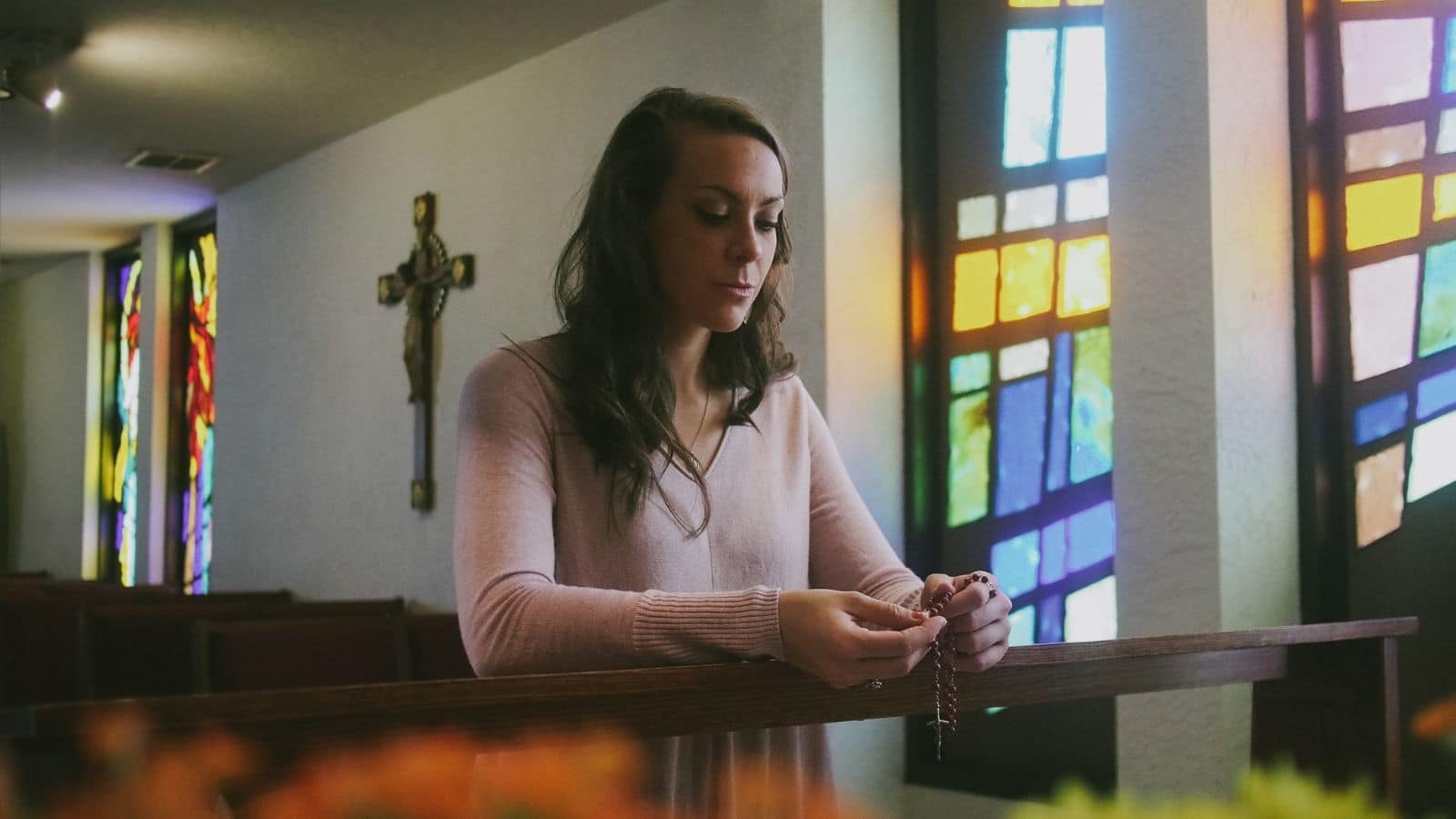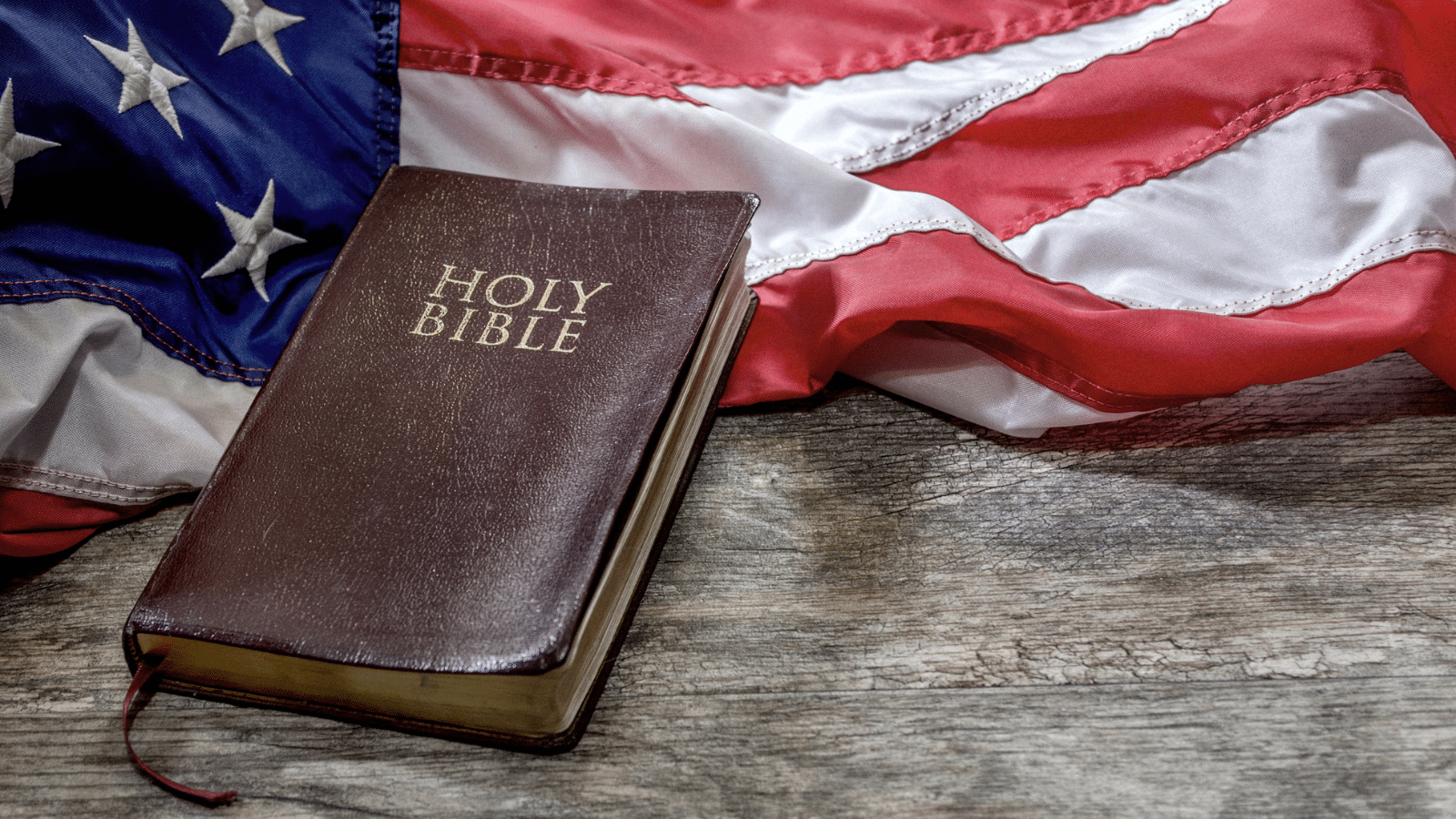Faith Under Fire: 12 Hot-Button Issues Christians Can’t Ignore
Christianity is a major world religion with a lot of beliefs and practices. Like any big belief system, it has some parts that are hard to understand. In this article, we will talk about 12 of these challenging things in Christianity.
We want to have an open and respectful discussion about them. This isn’t meant to take away from the importance of the faith but to help us see its different sides and encourage people to talk openly about their thoughts and questions. Let’s dive into these aspects to better understand the rich and diverse nature of Christianity.
1. The Problem of Evil

Thinking about why there’s evil in a world created by a powerful and good God is an old question that many believers find challenging. To understand it better, we have to look at two important things: free will and divine purpose. The challenge is trying to make sense of why bad things happen when God could stop them and still be good.
Some say that having the freedom to choose, even if it leads to bad things, is important for real love and goodness. Others believe that God allows evil for a higher purpose, like helping people grow or understand life better. It’s a profound question that needs believers to explore and understand how these ideas fit together, making sense of God and the complicated aspects of being human.
2. Inclusivity and Exclusivity

Christianity teaches us to love everyone, and it says that salvation comes through following Christ. But figuring out how to be loving to everyone while also saying only followers of Christ get salvation brings up big questions. People wonder what happens to those who follow different beliefs and how Christianity fits into a world with many different faiths.
It’s like trying to understand how our faith can respect others’ beliefs. This challenge makes us think about God’s kindness, how people find meaning, and how we can all get along in a world with many beliefs. Figuring out this balance is important for Christians as we try to live our faith in a world full of diverse perspectives.
3. Interpreting Biblical Texts

The Bible is super important for Christians, but different people see it in different ways. Figuring out how to read and understand it in today’s world is a big deal for making sense of our faith. We need to remember when and where it was written and think about how its teachings relate to our lives now.
Talking about how we interpret the Bible today helps us see how its messages connect with what’s happening in our world. It’s an ongoing thing that helps us understand our faith better and how it fits into our world today.
4. Gender Roles

Thinking about the roles of men and women in the Church can be tricky in today’s changing world. People have different ideas about what those roles should be. It’s important to have open and honest discussions about this. Listening and understanding each other is key.
These discussions help create a Church where everyone feels included and treated equally. By talking openly about how men and women are seen in the Church, we can make sure everyone feels important in their faith community, no matter their gender. This is a journey toward making the Church a welcoming and equal place in today’s diverse world.
5. LGBTQ+ Inclusion

As more people accept and support the LGBTQ+ community, some Christian groups are trying to figure out how to fit these changing views with their traditional teachings. This is a tough conversation that involves looking at what the Bible says, thinking about the old ways of doing things, and also considering what we understand now.
It’s like trying to find a balance between what’s always been believed and the experiences of LGBTQ+ people. This ongoing talk is about respecting everyone’s views, being open to new ideas, and finding a way for the Christian community to include and understand LGBTQ+ individuals better.
6. Science and Faith

Some Christians find it hard to match up what science discovers with certain stories in the Bible. Figuring out how to keep faith while also accepting what science shows us needs open and thoughtful talks. It’s about finding connections between what we believe and what science tells us, not picking one over the other.
These discussions are like exploring how biblical stories fit with our current knowledge. The key is to be curious and open-minded, seeing how both faith and science can teach us different things about life. It’s about creating a space where our beliefs and what science discovers can work together, letting both sides bring something valuable to the table.
7. Social Justice

Christianity tells us to care a lot about fairness and kindness. It’s not just about believing in these things. It’s about figuring out how to make them happen in today’s world. We need to have reasonable discussions about how to use these values in dealing with issues like poverty, racism, and inequality.
These discussions are meaningful because they help us think about what our faith calls us to do in practical, caring ways. It’s about looking at why these problems exist and what each person and community can do to make the world a fairer and kinder place. By applying these values to real-life issues, Christians can make a big difference and make the world a better and more caring place for everyone.
8. Religious Pluralism

In today’s world, Christians often meet people with different beliefs from all over. Talking openly and respectfully about these different beliefs is super important. Getting to know each other, learning from different perspectives, and finding things we share is important. These talks act like bridges, connecting people of different faiths and helping everyone understand each other better.
By appreciating the variety of beliefs, Christians help make the world more peaceful and welcoming. It means respecting each person’s journey in faith and creating a space where everyone, regardless of religion, can get along with respect and understanding. Through these conversations, Christians help build bridges that connect people from various faiths, bringing everyone closer together in our diverse global community.
9. The Nature of God

Thinking about what God is like, especially when bad things happen, is really tough for believers. It’s a time when people ask big questions about their faith. Talking about God being all-powerful, all-knowing, and good opens the door for believers to explore the complicated parts of their beliefs.
These conversations aren’t just about understanding God. They’re about finding meaning when things go wrong and seeking comfort when times are tough. It’s like trying to figure out why bad things happen when we believe in a powerful and good God. These discussions help believers navigate the balance between their faith in a higher power and the difficult parts of life, making their connection with God even deeper.
10. Political Involvement

When religion and politics mix, it can cause disagreements. Christians, like many others, face a challenge: how to get involved in politics while staying true to their faith. It’s like trying to find a balance between being politically active and sticking to their deeply held beliefs. This challenge leads to important talks about what it means to be responsible in the community and how to be involved in politics in a way that follows their faith’s teachings.
Christians discuss how to be a part of politics while staying true to their moral values. These conversations are about more than personal beliefs. They’re about figuring out how to be active citizens without losing sight of what matters most in their faith. It’s a chance for Christians to think about how their beliefs and political actions come together, promoting a thoughtful and responsible approach to being part of the community.
11. The Role of Doubt

Realizing that it’s okay to have doubts about your faith is a conversation that might feel a bit tough but is really important. It means being open to questioning and having uncertain feelings about what you believe in. But going through this process is key for personal and spiritual growth. Embracing doubt doesn’t mean giving up on your faith. It’s more about understanding that it’s okay to question things along the way.
Doing this can actually make your spiritual beliefs deeper and more genuine, giving you a faith that can withstand life’s challenges. So, facing and accepting doubts can be a journey of self-discovery that strengthens and enriches your faith, showing that uncertainty can be a valuable and transformative part of your spiritual experience.
12. Caring for the Environment

Nowadays, Christians are dealing with a big task: taking care of the environment. With all the talk about climate change and pollution, believers are thinking about how their faith connects to the Earth. It’s like balancing what the Bible says about humans being in charge of the Earth and needing to be responsible caretakers.
This means Christians are asking themselves questions about doing what’s right, protecting nature, and making sure the planet stays healthy for the next generation. It’s an ongoing conversation that needs Christians to talk openly and think deeply about their role in looking after the world they live in.
Things Christians Wish Non-Christians Knew About Their Faith

Christianity, a globally practiced faith, holds profound significance for its followers. It can also be misunderstood by those who do not practice Christianity, which can harbor some frustrations for practicing Christians.
Recently, on a popular social media page, we found some things Christians wish non-Christians knew about their faith.
Things Christians Wish Non-Christians Knew About Their Faith
Skipped Church Today? Why Christians are Opting Out of Regular Sunday Services

Did you make it to Sunday church this morning? If not, you’re not alone.
A recent Lifeway Research study identified some common reasons why Christians are skipping church these days — and some of the reasons might be surprising.
Hebrews 10:24-25 tells us, “And let us consider how we may spur one another on toward love and good deeds, not giving up meeting together, as some are in the habit of doing, but encouraging one another—and all the more as you see the Day approaching.”
Yet, for these Christians, there are several very good reasons why they might miss any given Sunday morning.
Skipped Church Today? Why Christians are Opting Out of Regular Sunday Services
So Irritating! These 12 Statements Made By Non-Christians Are Really Offensive

In our diverse world, respectful dialogue among different belief systems is essential for harmony.
Let’s dive into some statements made by non-Christians that can sometimes offend Christians, even if not on purpose. It highlights the importance of fostering empathy and understanding to promote a more inclusive society.
So Irritating! These 12 Statements Made By Non-Christians Are Really Offensive
Whoops! 12 Christian Convictions that Drive Non-Christians Bananas

In a world where people have different beliefs and ways of life, it’s important to talk and understand each other. Christians have their own particular beliefs, but sometimes these ideas can make non-Christians scratch their heads or feel a bit uneasy.
We’re not here to judge, but to help everyone understand each other better. Let’s have open and respectful conversations to bridge the gap between different perspectives.
With that being said… Let’s take a look at some common Christian opinions or beliefs that might make non-Christians upset.
They may not be what you think…
Whoops! 12 Christian Convictions that Drive Non-Christians Bananas
Oops! These 10 Popular Bible Verses Don’t Mean What You Think

The Bible is full of inspirational verses that can encourage us, lift us up, and remind us of God’s goodness.
Yet, just because a verse sounds encouraging doesn’t mean that’s the way the original author meant his or her words to be understood.
Here are 10 popular Bible verses people love to take out of context, completely distorting their original meaning in the process.
Oops! These 10 Popular Bible Verses Don’t Mean What You Think






